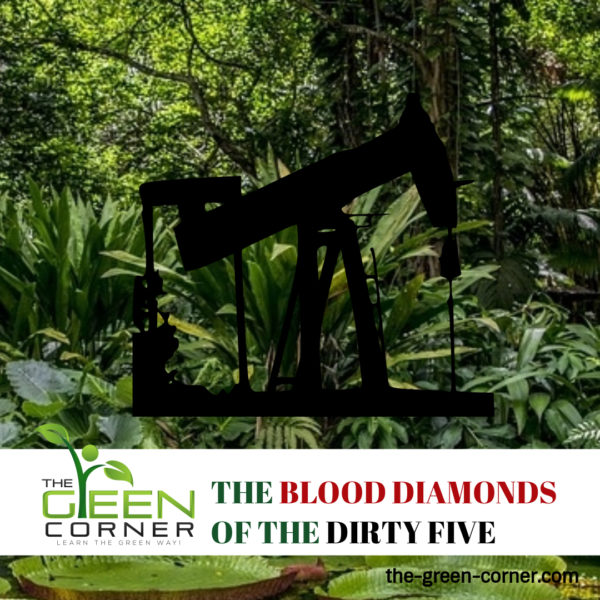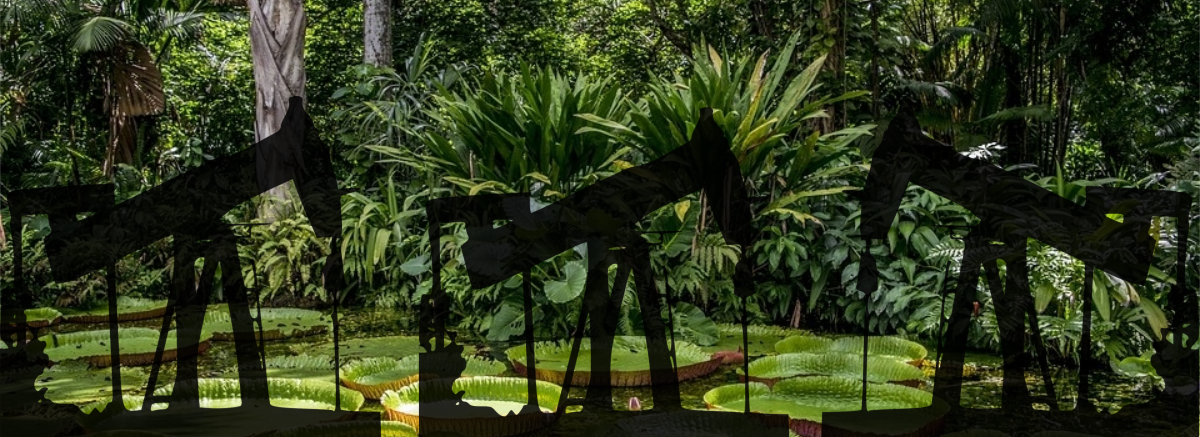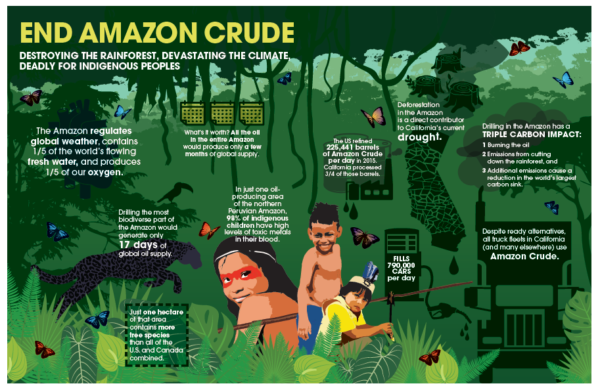The Blood Diamonds of the Dirty Five
How Investing in Amazon Crude is Destroying the Amazon and the Lives of its Inhabitants.
Over the years, a number of businesses have been at the forefront of addressing climate change issues. They have expressed their commitment to climate initiatives, such as The Paris Agreement on Climate Change, on different occasions, and have even gone ahead and funded projects that are geared towards climate change mitigation. Others have gone to the extent of developing policies, which address climate change and sustainable businesses directly.
Meet the Dirty Five
Unfortunately, not everyone is on the same page. Corporations that have the potential to give a significant impact are funding activities and projects that threaten the lives of millions of people as well as the survival of our planet. Five of the most powerful financial institutions, namely: Citigroup, JPMorgan Chase, Goldman Sachs, HSBC, and BlackRock, have acquired a bad reputation – they are now being referred to as the “Dirty Five”. These financial institutions need to be stopped by any means necessary, as they are actively playing a role in damaging our planet by providing debt and equity financing to companies that are engaged in crude oil extraction in The Amazon rainforest.
The Amazon
The Amazon is a unique ecosystem, which plays a critical role in the functioning of Earth’s climate, both regionally and globally. Its destruction will mean doom for the world. This rainforest accounts for five percent of the forest cover in the world and the absorption of nearly a quarter of the Earth’s greenhouse gas emissions is attributed to it. It is one of Earth’s natural thermostats, playing a huge role in influencing weather patterns and regulating the global climate. The Amazon covers around five percent of the Earth’s surface and is home to a third of the plant and animal biodiversity in the world. It is also the home of fifty percent of the Amazon’s indigenous peoples.
As of now, the Amazon rainforest is experiencing massive destruction from human activities. One major project that threatens this vital ecosystem is the new oil drilling in the western Amazon. If left unchecked, this operation threatens to destroy the entire biodiversity of the rainforest, and the livelihood of the indigenous people, a community that has only known the rainforest as their home.
Investing in Amazon Crude
Collectively, “The Dirty Five” firms have made available more than ten billion dollars to GeoPark, Frontera, Amerisur, and Andes Petroleum, oil firms that are engaged in exploration projects in The Amazon, in the last three years. These oil firms have already acquired oil field leases that directly interfere with the ancestral rights of the indigenous populations in the region. The Indigenous people are strongly opposed to oil drilling activities, as these not only threaten their livelihoods but also jeopardize the efforts of addressing the threats posed by climate change. More than Black Gold, the Amazon crude is more like Blood Diamonds in a Barrel according to activists in the region.
The “Dirty Five” have escaped scrutiny from rights and advocacy groups due to the complexity of the issues surrounding oil extraction, and the drilling of crude, in the rainforest. However, the organization Amazon Watch has taken initiative, together with other organizations that are conscious of the grave problems posed by these activities.
As you may imagine, the Dirty Five are not working alone in the devastation of the Amazon. What happens when governments in the Amazon Region reduce the amount of oversight, regulations, and inspections of oil drilling & pipeline projects?
Let’s look into the recent oil spill in Ecuador. According to Amazon Watch, due to erosion in a channel of Ecuador’s Coca River, the state-run oil pipeline ruptured, causing an oil spill on April 9, 2020:
“Ecuador’s state-run oil company, Petroecuador, reported the pipeline bursts of the Trans-Ecuadorian Pipeline (SOTE), the OCP (Oleoducto de Crudos Pesados – Heavy Crude Pipeline), and the Poliducto Shishufindi-Quito in an official statement issued April 7th, 2020. The ruptures occurred as a result of a reduction in pipe pressure after the ground eroded out underneath due to heavy rains, and a landslide that followed, in the San Rafael region of the Amazonian provinces of Napo and Sucumbíos.
In light of these facts, the Alliance of Human Rights Organizations demands that the Ecuadorian government immediately and urgently inform the public of the magnitude of the spill, the places impacted, and the actions that have been taken to prevent further impact on the population. According to reports from the communities in the area, the spill has already affected the Panduyacu community and the Monos river canyon in the Amazon. This spill could not have come at a worse time for indigenous peoples and communities near the river, as they are working to protect themselves from the spread of COVID, and securing access to basic food, sanitary supplies, and potable water.”
Amazon Watch is a nonprofit organization founded in 1996 to protect the rainforest and advance the rights of indigenous peoples in the Amazon Basin. They partner with indigenous and environmental organizations in campaigns for human rights, corporate accountability, and the preservation of Amazon’s ecological systems. They are targeting these players with a campaign dubbed “End the Amazon Crude”, where they are asking for a radical shift in money-lending institutions through social pressure from the people. And together with several organizations, they are organizing 3 days of action to #StoptheMoneyPipeline On April 22-24, the 50th anniversary of Earth Day, millions of people around the world are going online for a three-day mobilization to stop the climate emergency. All you need is an internet connection.
What can be Done?
Everybody has a role to play, from government, fossil fuel companies, financial institutions, rights, and advocacy groups to the public and individuals.
Governments need to protect the rights of the indigenous populations and need to stop giving leases to oil exploration companies, which will strengthen the capacity of the communities in protecting the forest. Fossil fuel companies must rethink their ideas, this may not go well for them in the short term, but it is for the good of the entire world. They need to understand that their activities cause more harm than good to the public and the planet and can rather channel their funds towards the production of clean energy.
In truth, some of them will not change, the corporate greed is too strong to stop on their own. This is where the government and the community can step in. Unfortunately, many governments are corrupt and influenced by these corporations so they will take their side to facilitate their business. Even though the government should be working for the people, they don’t. They work for their donors and give the people morsels to keep them happy. In the end, it’s up to the people to do something. We have more power than we think. By changing our ways to consume products and services and paying attention to what corporations do. There is a lot we can achieve collectively.
Financial investment corporations have a huge responsibility as well: they are requested to stop financing fossil fuel projects, and instead, focus their attention on clean energy. This is the only way that an important ecosystem like The Amazon can be saved as well as ensure that the world turns to clean energy – they owe it to communities, to protect them.
Through corporate social responsibility activities, these corporations should finance only the projects that benefit their communities as a whole. They commit to ending all forms of funding, including existing projects, that expand fossil fuel extraction capacities as well as renew their commitment to limit global warming. Investment corporations should also force the firms they are currently funding the drilling of Amazon crude and require all their customers to fully respect the rights of indigenous people as well as human rights in general.
Individuals that are clients of these financial institutions can put pressure on their service providers to incorporate a range of issues that ensure the corporations comply with the requirements to protect the environment. Clients can urge institutions where they have relationships to align with best practices, demanding their full participation in ensuring that the forest is preserved, and the people, whose lives depend on it, are protected from the intentions of the big firms.
The Amazon Rainforest is such an important ecosystem, so we all have a responsibility to help:
?Join the movement on April 22 to 24, 2020: Strike, divest, and vote to save humanity and our planet. Sign up for the online event at www.earthdaylive2020.org
?Demand changes to end the Amazon Crude Drilling: Call them, send them emails, and overwhelm their system with calls and emails to get their attention.
?Stop buying products, or using services from Citigroup, JPMorgan Chase, Goldman Sachs, HSBC, and BlackRock: Take Your Money Out!

Sources from Amazon Watch:
2020 Report Investing in Amazon Crude https://amazonwatch.org/assets/files/2020-investing-in-amazon-crude.pdf
Building Power to End Investment in Amazon Crude https://amazonwatch.org/assets/files/2020-building-people-power-to-end-investment-in-amazon-crude.pdf
Stop Fuelling the Amazon Destruction https://amazonwatch.org/assets/files/2017-stop-fueling-amazon-destruction.pdf
Amazon Crude Infographic https://amazonwatch.org/assets/files/2016-amazon-crude-infographic.pdf
Oil Spill Along the Coca and Napo Rivers Affects Ecuadorian Indigenous Communities https://amazonwatch.org/news/2020/0409-oil-spill-along-the-coca-and-napo-rivers-affects-ecuadorian-indigenous-communities
A big THANK YOU to OG and Jenny M who help me finalize this article.??

